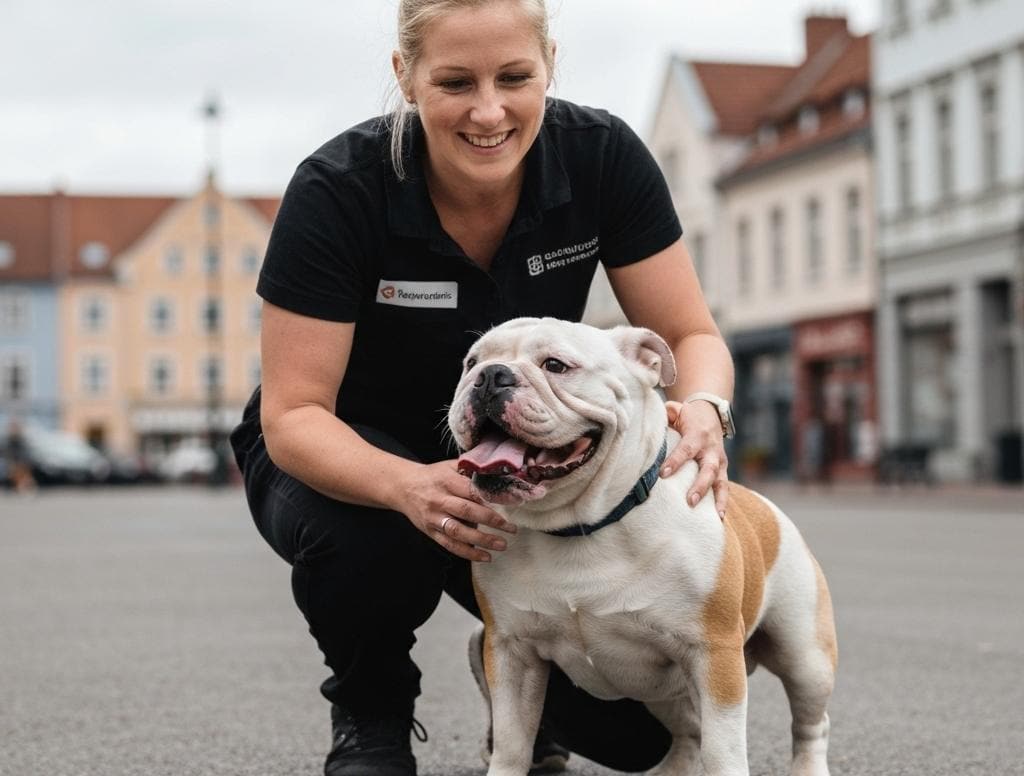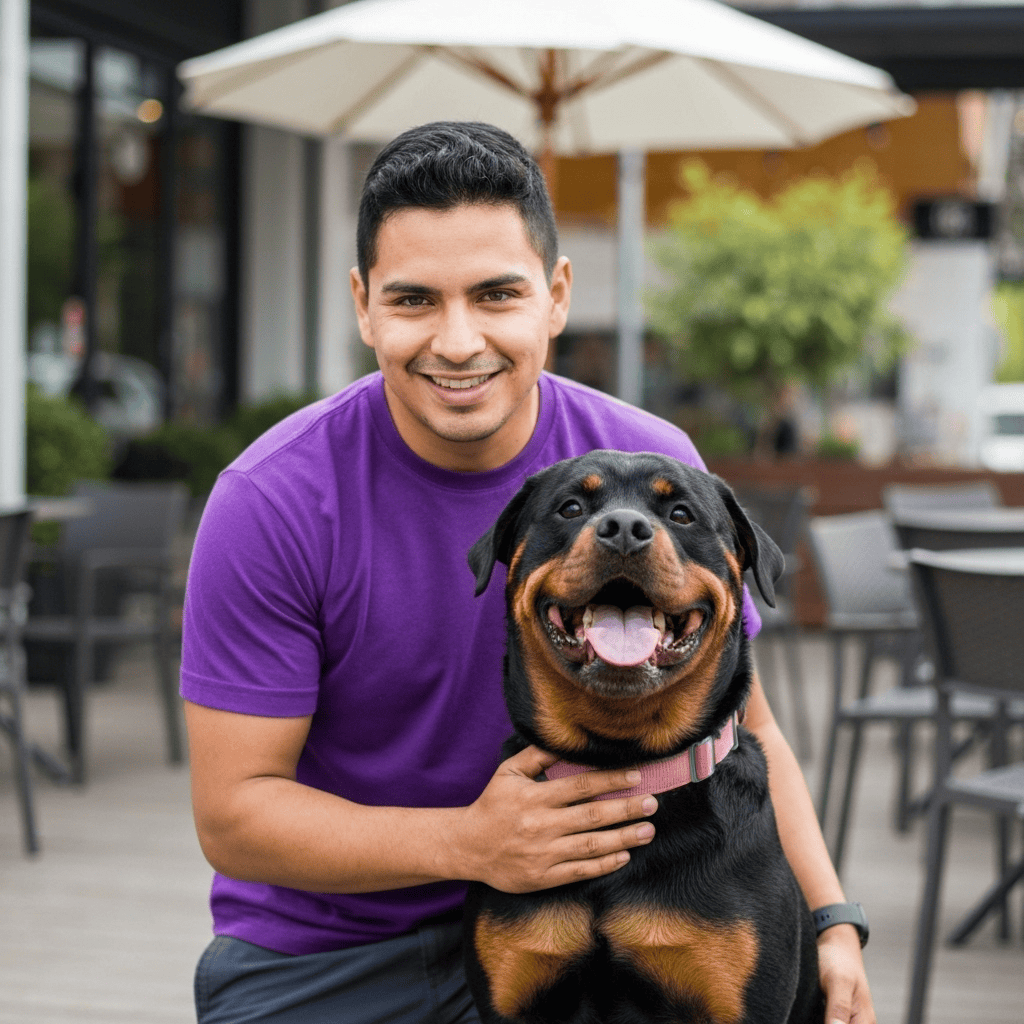Your Complete Guide to Choosing a Dog Trainer in North Carolina
Living with a dog in North Carolina means training for real life around busy greenways, brewery patios, farmers markets, and beach boardwalks. From Charlotte’s Rail Trail to the Wilmington Riverwalk, dogs here need solid manners, focus around distractions, and calm behavior in public spaces.
A good training plan in North Carolina builds skills that work in everyday settings. That usually means positive reinforcement, short practice sessions, and gradual exposure to crowded places once your dog is ready.
How to Choose the Right Trainer
Look for a professional dog trainer who uses reward-based methods and explains their process clearly. Ask about formal education and respected credentials like dog trainer certifications, KPA-CTP, CPDT-KA, CBCC-KA, CTC, or IAABC-CDBC.
Trainers who work across NC should be comfortable coaching in public locations. That includes polite leash walking on greenways, stationing calmly at patios, and practicing recall only in legal off-leash areas.
If you plan to use parks, ask how they handle permits or rules for commercial activity where required. Some cities and venues ask for proof of liability insurance before group activities inside parks.
Common Dog Training Methods Explained

Positive reinforcement training rewards the behaviors you want. It builds trust and gives you repeatable results in noisy, high-distraction places.
Behavior modification is used for fear, reactivity, or aggression. It relies on desensitization and counter-conditioning, starting at distances where your dog can stay calm.
Puppy training focuses on socialization, potty training, handling, and gentle exposure to sights and sounds common in North Carolina’s cities and trails. Obedience training covers everyday skills like sit, down, stay, leash training, and recall – and it should include real-world proofing in places you actually go.
Day training and board and train can jump-start skills. Make sure you get clear handoffs, homework, and transparency about how your dog is trained.
Service dog training and therapy dog training are specialized. Ask about experience with task training, public access preparation, and evaluation steps.
Average Cost of Dog Training in North Carolina (Updated for 2025)
Prices vary by metro area, trainer experience, travel distance, and whether sessions are private or group. Here’s what most NC dog owners can expect to see in 2025.
| Service Type | Typical North Carolina Cost |
|---|---|
| Group classes, 4 to 6 weeks | $150 – $300 |
| Puppy classes, 4 to 6 weeks | $140 – $260 |
| Private lessons, 60 minutes | $90 – $160 |
| In-home dog training, 60-90 minutes | $110 – $180 |
| Behavior consult, initial 75-90 minutes | $120 – $220 |
| Day training, per week | $400 – $800 |
| Board and train, 2 to 4 weeks | $1,800 – $4,000 |
| Service dog training evaluation | $150 – $250 |
Expect higher rates near Charlotte, Raleigh, and Asheville, and travel fees for rural areas. Many trainers offer package discounts and a free consultation or paid evaluation before starting.
Questions to Ask a Potential Dog Trainer
- What training methods do you use, and how do you keep sessions positive and low stress?
- What certifications or education do you have, such as CPDT-KA or KPA-CTP?
- How will you tailor a training program to my goals, schedule, and home environment?
- Do you offer in-home options, private lessons, group classes, or day training, and which fits my goals?
- How do you measure progress and decide when to increase distractions?
- What is included in your packages, and what are your policies on cancellations and travel fees?
- Do you carry liability insurance, and can you provide proof?
- For behavior cases like reactivity or separation anxiety, do you coordinate with veterinarians if needed?
- What daily practice should I do between training sessions?
Local North Carolina Resources for Dog Owners
North Carolina has excellent places to practice around distractions and build confidence. Always follow posted rules, keep dogs leashed unless you’re inside a designated off-leash area, and be respectful of other park users.
- Raleigh Dog Parks: Off-leash areas for safe recall practice and socialization. City of Raleigh Dog Parks
- Cary Dog Parks: Fenced spaces with small and large dog sections. Town of Cary Dog Parks
- Cape Hatteras National Seashore: Leashed dogs can join you on many beaches and trails. NPS Cape Hatteras Pets
- Blue Ridge Parkway: Great for calm leash work and environmental socialization. NPS Blue Ridge Parkway Pets
- Rabies and vaccination guidance statewide: Rules, clinics, and contact info. NCDHHS Rabies
- Facility and boarding standards for kennels: Useful if a board and train program keeps dogs overnight. NC Animal Welfare Section
Practical North Carolina Rules To Keep In Mind
North Carolina requires current rabies vaccination for dogs, with proof via tag and certificate. Counties manage local enforcement, so keep documents handy when training in public.
There’s no single statewide leash law. Most cities and counties require leashes in public unless you’re inside a posted off-leash area, so plan training sessions with that in mind.
Licensing and microchipping rules vary by county. Some areas require pet licenses while others only require rabies tags, so check your county animal services page before you start group activities or boarding.
Commercial activities in parks may require permission from the park owner. If a trainer offers group classes in a city park, they should coordinate with that city’s parks department.
Trainers are not currently licensed at the state level. Responsible businesses carry general liability insurance and follow local business rules.

Common Questions About Dog Training in North Carolina
How much does in-home dog training cost?
Across North Carolina, most in-home sessions run $110 to $180 for 60 to 90 minutes, with higher rates in larger metros and for complex behavior cases.
Is in-home dog training worth it?
Yes, especially for household manners, leash skills in your neighborhood, and issues like door greetings or reactivity near your home.
Can you pay someone to house train your dog?
Yes. Many trainers include potty training as part of puppy training, day training, or board and train, but success depends on a consistent schedule at home.
What is the 3-3-3 rule for dog training?
It’s a simple way to set expectations for new dogs: 3 days to decompress, 3 weeks to learn routines, and 3 months to fully settle. Training should match your dog’s pace.
How long will it take to reach my training goals?
Most families see progress within a few sessions when they practice daily. Basic obedience takes 4 to 8 weeks, while behavior modification for reactivity or fear can take several months.
What should I bring to group classes?
Bring high-value treats, a 6-foot leash, a well-fitted collar or harness, water, and proof of vaccinations if requested. Skip retractable leashes for safety.
What’s the leash law in North Carolina?
Leash rules are set locally. Expect leashes to be required in public areas unless you’re inside a posted off-leash dog park. Check the park’s signs before training.
Do I need a dog license in North Carolina?
Licensing requirements vary by county. Some require a pet license, others accept a rabies tag as proof. Verify with your county animal services before enrolling in services that require documentation.
What shots does my dog need in North Carolina?
Rabies vaccination is required statewide. Your veterinarian may recommend additional vaccines based on your dog’s lifestyle and local risks. See state guidance at NCDHHS Rabies.
Are dog trainers required to be licensed in North Carolina?
No. There’s no state-issued license for trainers. Many pros pursue voluntary credentials like CPDT-KA or KPA-CTP and maintain business insurance for client protection.
Where can I practice off-leash recall?
Use only designated off-leash dog parks or securely fenced private property. Start with long-line work in quiet spots, then practice inside fenced areas before trying busier parks.
Which dog parks allow training around North Carolina?
City dog parks typically allow training as long as it doesn’t disrupt others and follows posted rules. For example, review rules for Raleigh facilities at City of Raleigh Dog Parks before visiting.
What beaches and trails allow dogs for training?
Leashed dogs are welcome on many sections of Cape Hatteras National Seashore and Blue Ridge Parkway trails. Check current pet policies at Cape Hatteras and Blue Ridge Parkway before you go.
Do board and train programs need special licenses?
In North Carolina, facilities that house dogs for a fee may fall under the state’s Animal Welfare Act. Review standards at the NC Animal Welfare Section and ask any provider how they comply.
What insurance should a trainer carry?
General liability insurance is standard. If employees handle dogs, trainers often add workers’ compensation, and some carry commercial auto when transporting dogs.
Final Tips For North Carolina Dog Owners
Choose a certified dog trainer who can coach you in real places you actually use. Start easy, keep sessions short, and practice often.
Build skills at home, then take them to greenways, patios, and parks once your dog is ready. That’s how you help your dog become a well-behaved companion anywhere in North Carolina.
